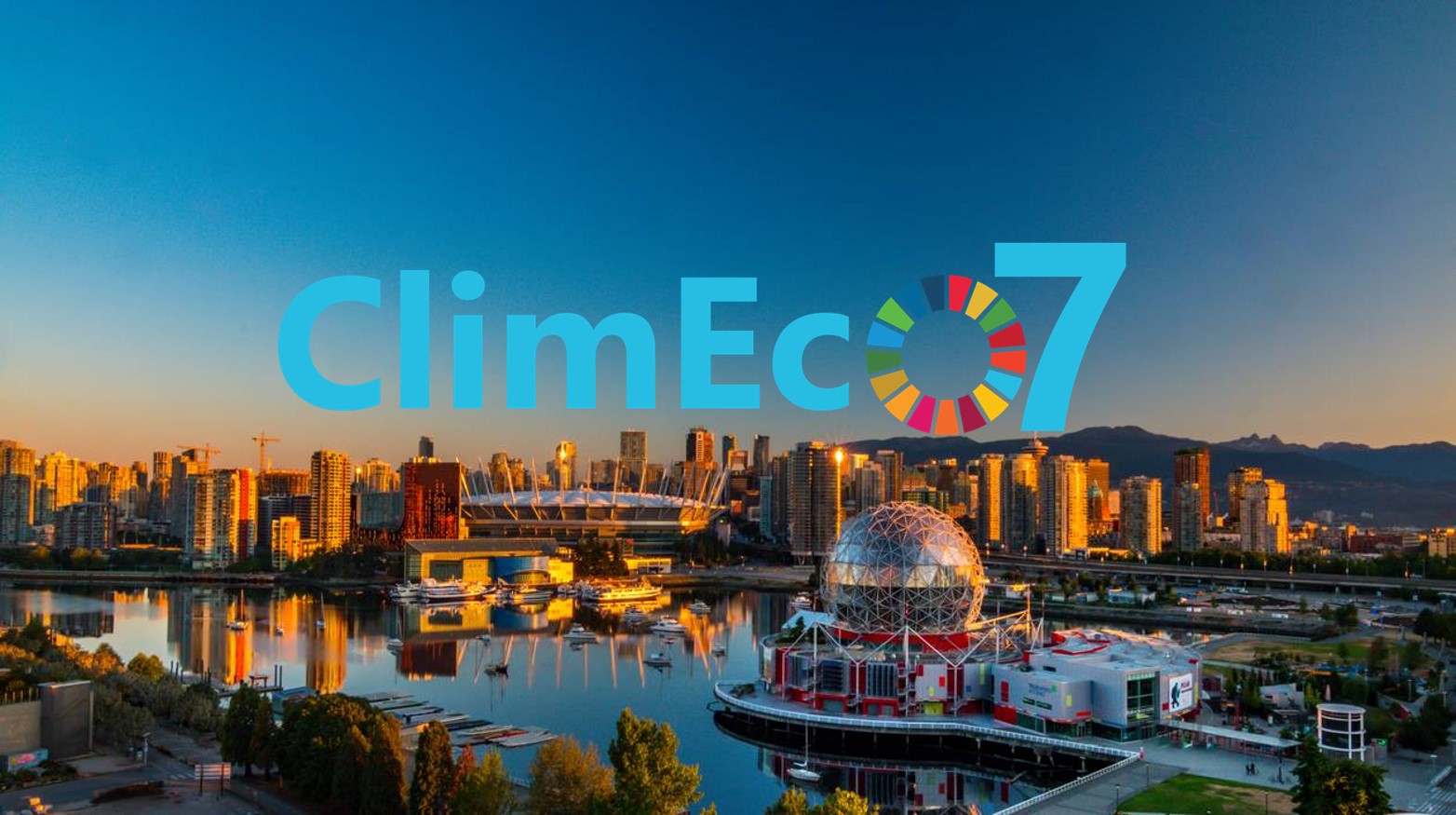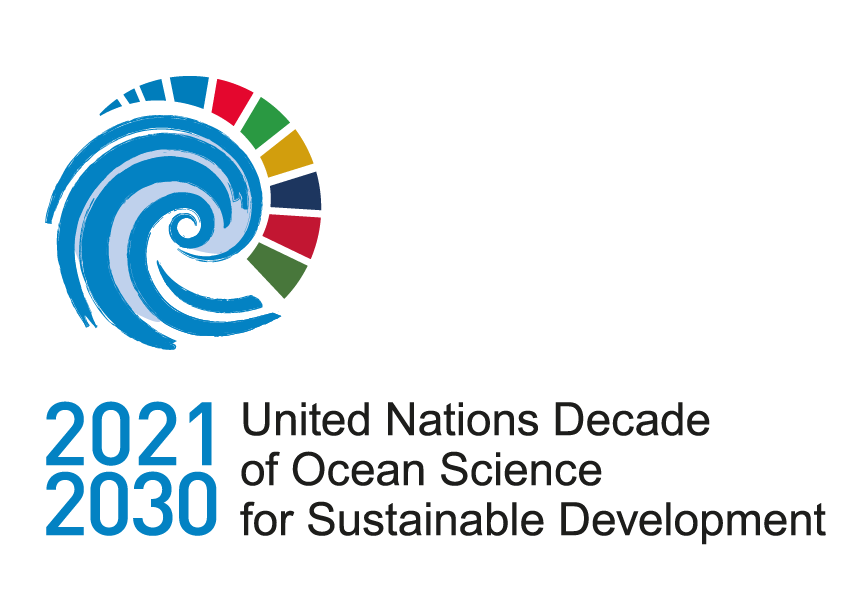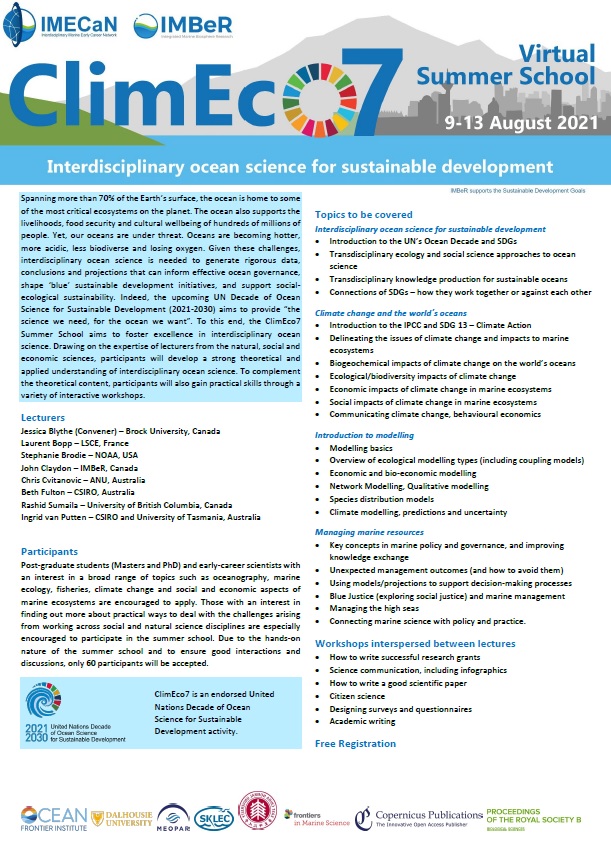
IMBeR ClimEco7 – Interdisciplinary ocean science for sustainable development
IMBeR’s ‘Climate and Ecosystems’ Summer School
ClimEco7 was the seventh in a series of “Climate and Ecosystems” biennial summer schools organised by IMBeR, the Integrated Marine Biosphere Research project. ClimEco summer schools are designed for 60-70 post-graduate students and early career researchers and are led by an interdisciplinary group of scientists which includes leaders in their respective fields.
ClimEco7 was an endorsed United Nations Decade of Ocean Science for Sustainable Development activity.

When and where
ClimEco7 was held virtually 9-13 August 2021.
Recordings
Lecturers
Focus of ClimEco7
Spanning more than 70% of the Earth’s surface, the ocean is home to some of the most critical ecosystems on the planet. The ocean also supports the livelihoods, food security and cultural wellbeing of hundreds of millions of people. Yet, our oceans are under threat. Oceans are becoming hotter, more acidic, less biodiverse and losing oxygen. Given these challenges, interdisciplinary ocean science is needed to generate rigorous data, conclusions and projections that can inform effective ocean governance, shape ‘blue’ sustainable development initiatives, and support social-ecological sustainability. Indeed, the upcoming UN Decade of Ocean Science for Sustainable Development (2021-2030) aims to provide “the science we need, for the ocean we want”. To this end, the ClimEco7 Summer School aimed to foster excellence in interdisciplinary ocean science. Drawing on the expertise of lecturers from the natural, social and economic sciences, participants developed a strong theoretical and applied understanding of interdisciplinary ocean science. To complement the theoretical content, participants also gained practical skills through a variety of interactive workshops.
Topics covered
Interdisciplinary ocean science for sustainable development
- Introduction to the UN’s Ocean Decade and SDGs
- Deep dive into SDG 14 Life Below Water and SDG 2 No Hunger
- Deep dive into SDG 10 Reduced Inequalities
- Connections of SDGs how they work together or against each other
Climate change and the world´s oceans
- Introduction to the IPCC and SDG 13 Climate Action
- Delineating the issues of climate change and impacts to marine ecosystems Slides
- Biogeochemical impacts of climate change on the world’s oceans
- Ecological biodiversity impacts of climate change
- Economic impacts of climate change in marine ecosystems
- Social impacts of climate change in marine ecosystems
- Communicating climate change, behavioural economics
Introduction to modelling
- Modelling basics
- Overview of ecological modelling types (including coupling models)
- Economic and bio economic modelling
- Network modelling, Qualitative modelling
- Species distribution modelling Recording
- Climate modelling, projections and uncertainty
Managing marine resources
- Key concepts in marine policy and governance, and improving knowledge exchange
- Unexpected management outcomes (and how to avoid them)
- Using models projections to support decision making processes
- Introduction to (transdisciplinary) marine social science Recording
- Managing the high seas
- Connecting marine science with policy and practice
Workshops interspersed between lectures
- How to write successful research grants
- Science communication, including infographics
- How to write a scientific paper Slides
- Citizen science
- Designing surveys and questionnaires
- Academic writing
More information

